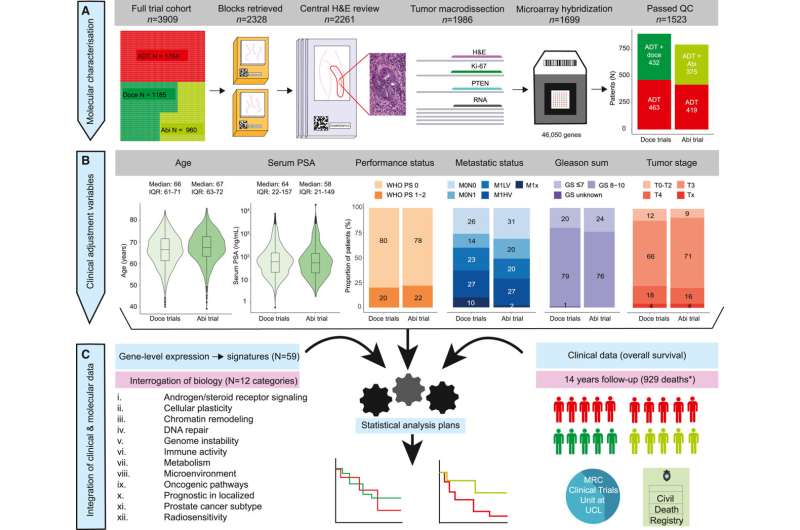Published in Cell, the study is the first strong evidence that a gene expression test performed on routinely collected prostate tissue can help guide therapy choices for prostate cancer patients whose cancer has spread to other parts of the body (metastatic cancer). The test is called the Decipher Prostate Genomic Classifier test and is manufactured by Veracyte.
The study included 1,523 patients recruited to the STAMPEDE phase III trials, that had been diagnosed with advanced prostate cancer and started treatment with androgen deprivation therapy (ADT), which blocks male hormones such as testosterone that can drive prostate cancer growth. The STAMPEDE trials tested the additional benefit of adding abiraterone or docetaxel to ADT and the study patients were followed up for a median of 14 years.
Among the 832 patients with metastatic prostate cancer, those with high Decipher Prostate scores had a 36% reduction in the risk of death after treatment with docetaxel, while those with lower Decipher scores had a reduction in the risk of death that was estimated at less than 4%.

